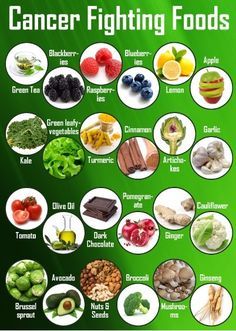
Diagnosed with Cancer? Your two greatest challenges are understanding cancer and understanding possible side effects from chemo and radiation. Knowledge is Power!
Learn about conventional, complementary, and integrative therapies.
Dealing with treatment side effects? Learn about evidence-based therapies to alleviate your symptoms.
Click the orange button to the right to learn more.
- You are here:
- Home »
- Blog »
- side effects ID and prevention »
- Breast Cancer, HRT, Estrogen and the Environment
Breast Cancer, HRT, Estrogen and the Environment

Environmental factors are believed to explain a large proportion of breast cancer incidence. Known risk factors for breast cancer, which are related to the reproductive life of women, and other factors, such as inheritance and socioeconomic status, explain only about half of the breast cancer cases in the US.
The New York Times produced an interesting article by Nicholas Kristof, titled “Cancer from the Kitchen?” which touches on many of my concerns regarding environmental causes of cancer and breast cancer (BC) in particular.
According to my biopsy, my breast cancer was 100% fueled by estrogen. Not only did I take 8 years of hormone replacement therapy, I also took 8 years of birth control pills.
I quickly discovered that I was exposing myself to many other potential sources of estrogen. I was eating at least three food bars a day (in a successful effort to lose 45 pounds) that contained isolated soy protein. My doctors quickly said to quit eating soy. I later discovered that eating only the isolated protein was likely a bigger problem than eating the whole product (and that there is some controversy about soy and breast cancer).
I found that things as simple as the lavender lotion that I liberally slathered on each day had an estrogenic effect. The meat I was eating had been injected with hormones. The plastic bottles I was drinking from released estrogen into my body. Household cleaning products release toxins. And on and on.
I would like to believe that I would not have gotten breast cancer without the 16 years of added estrogen, but I wonder if all the environmental toxins, my poor diet, and my several years of obesity and inactivity (as well as the fact that I lost the weight so quickly and released stored toxins into my body) could have caused it anyway.
National Public Radio (NPR) recently had a fascinating interview with Marisa Weiss, the founder of BreastCancer.org. I was pleased to hear her comments on what she feels are the dangers of genetically modified foods and environmental toxins regarding the risk of breast cancer. There is a summation of what she said on the NPR page, but listening to the interview covers much more interesting information.
I was not aware that she had been diagnosed with breast cancer. I wish she had revealed more information about her particular situation, but she did say that she did not take chemotherapy.
The New York Times also has an article about Marisa Weiss titled “A Doctor’s Mammogram Mission Turns Personal.”
Mary Miller- Breast Cancer Profile in Courage
The effect of environment on breast cancer risk.
“Environmental factors are believed to explain a large proportion of breast cancer incidence. Known risk factors for breast cancer, which are related to the reproductive life of women, and other factors, such as inheritance and socioeconomic status, explain only about half of the breast cancer cases in the US.
Ionizing radiation is a well established environmental risk factor for breast cancer.
Chemicals that induce mammary cancer in rodents have served as leads for studies in humans, but occupational and environmental exposure to these chemicals have for the most part lacked association with breast cancer risk.
However, there is recent evidence in rats that cadmium at very low doses acts as an estrogen mimic, indicating a need to investigate the effects of metals on breast cancer risk.
Studies suggest that circadian rhythm disruption is linked with BC, but too few studies have been done to be conclusive. Over the years, cigarette smoking as a risk factor for BC has remained controversial. However, recent research has found passive smoke exposure to be associated with increased BC risk, which is hypothesized to be accounted for on the basis of an antiestrogenic effect of smoking. Solar radiation has been noted to be associated with reduced BC, supporting the hypothesis that vitamin D plays a protective role in reducing this risk. Although most of the environmental factors discussed in this review have not been convincingly found to influence BC risk, research suggests that environmental exposure in combination with genetic predisposition, age at exposure, and hormonal milieu have a cumulative effect on BC risk.”
What environmental factors can affect the risk of breast cancer?
“Factors that can increase the risk of BC developing-
- Ionising radiation
- Medical x-rays (including mammograms)
- Radiotherapy treatment
Breast Cancer: Why the Environment Matters
“What Causes Breast Cancer?
Most women who develop breast cancer have no family history
of the disease, suggesting an environmental link. In a study,
inherited factors, such as the BRCA1 or BRCA2 genes, accounted
for only 27% of breast cancer risk.2
Although we know of many risk factors that increase women’s
chances of developing breast cancer, scientists do not completely
understand what causes normal cells to become cancerous.
But most experts agree that a combination of genetic, hormonal,
and environmental factors leads to breast cancer…”


